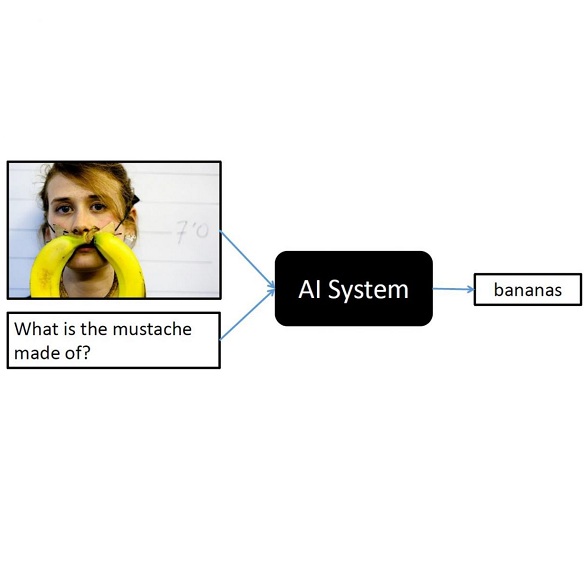Visual Question Answering (VQA) based on multi-modal data facilitates real-life applications such as home robots and medical diagnoses. One significant challenge is to devise a robust decentralized learning framework for various client models where centralized data collection is refrained due to confidentiality concerns. This work aims to tackle privacy-preserving VQA by decoupling a multi-modal model into representation modules and a contrastive module and leveraging inter-module gradients sharing and inter-client weight sharing. To this end, we propose Bidirectional Contrastive Split Learning (BiCSL) to train a global multi-modal model on the entire data distribution of decentralized clients. We employ the contrastive loss that enables a more efficient self-supervised learning of decentralized modules. Comprehensive experiments are conducted on the VQA-v2 dataset based on five SOTA VQA models, demonstrating the effectiveness of the proposed method. Furthermore, we inspect BiCSL's robustness against a dual-key backdoor attack on VQA. Consequently, BiCSL shows much better robustness to the multi-modal adversarial attack compared to the centralized learning method, which provides a promising approach to decentralized multi-modal learning.
翻译:暂无翻译



